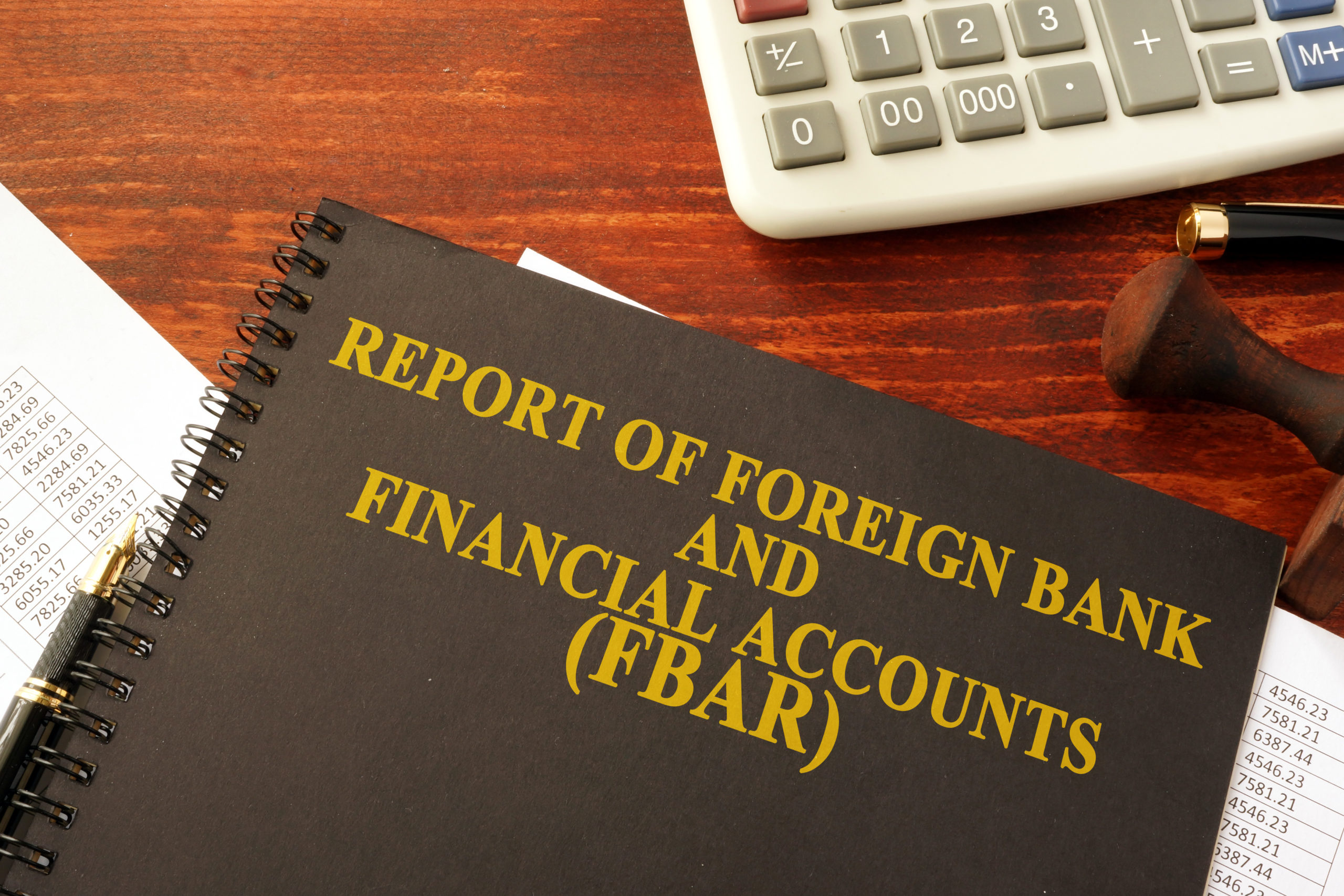What is FBAR Reporting?
The Bank Secrecy Act rules require taxpayers with financial accounts outside of the United States that total more than $10,000 in the aggregate to file an annual report with the IRS. This is called the Report of Foreign Bank and Financial Accounts or “FBAR”. Form 8938 (Statement of Foreign Financial Assets) may also be required to be filed each year for certain taxpayers with offshore accounts totaling more than $50,000. Taxpayers must file these forms even if they only have signatory authority over the accounts (alone or with others) and no actual legal claim to the funds in the accounts. Failure to comply with the various offshore asset reporting requirements can result in civil penalties, criminal prosecution, and even jail time.
Generally, you have to file an FBAR if, for any tax year, you meet the following requirements:
- You are a United States “person” (which can include residents in the United States on a visa);
- You have a “financial interest” in, or “signatory authority” over any “financial account” in a foreign county or jurisdiction; and
- The total value of all such foreign accounts exceeds $10,000 at any time (even for a day!) in a given year.
Who Should file FBAR?
The FBAR places a reporting obligation on a wide range of individuals. First, the reporting obligations may fall not just on United States citizens, but can also include taxpayers who are legally residing in the United States on a visa. Second, the reporting obligations may fall on somebody who is simply named as a joint owner on the account, even if the legal claim to the funds in the account rests with the other joint owner. Having the ability to withdraw or transfer funds on an overseas account (called “signatory authority”) in excess of $10,000 can trigger the FBAR reporting requirements.
What Happens if you don’t file FBAR?
Many taxpayers with outstanding FBAR obligations didn’t know about the reporting obligations until recently, and are therefore considered to be “non-willful” violators. This is in contrast to “willful” violators who intentionally evade U.S. detection of their overseas accounts. Although less severe than penalties for willful violators, penalties for non-willful violators can be draconian. Non-willful violators face a civil monetary penalty of up to $10,000 per account, per year under the FBAR regime, and may face additional penalties for unreported income associated with the foreign accounts.
Since the IRS understands that many people are unaware of their FBAR reporting obligations, the IRS has implemented voluntary disclosure programs for those individuals with outstanding FBAR-filing obligations who wish to avoid potential criminal investigation. These programs offer reduced civil monetary penalties for taxpayers coming forward with unreported accounts, and ensure that taxpayers will not face criminal penalties for coming clean.
Experienced attorneys know how to handle offshore asset disclosures which can range from relatively small cases, to millions of dollars in unreported assets. In addition to assisting clients with the complying IRS’ requirements, they can assist clients in making disclosures outside of these programs (so-called “quiet” disclosures). While taxpayers must report their overseas accounts to comply with the law, there are alternatives to the draconian penalties associated with the IRS’ voluntary disclosure programs.








